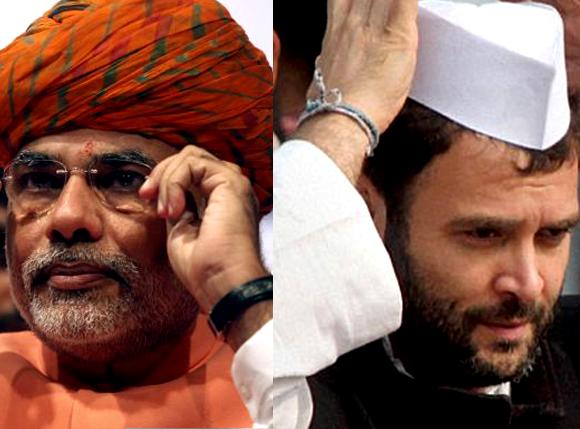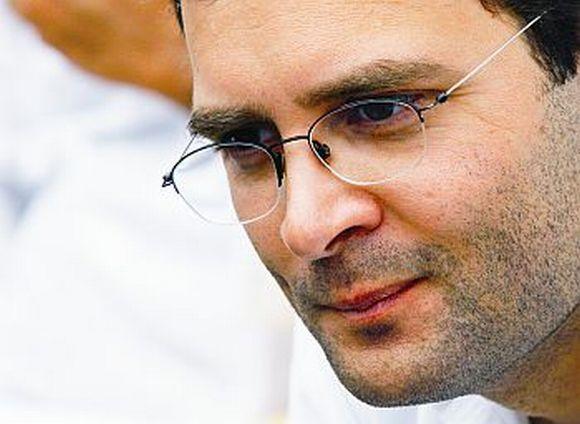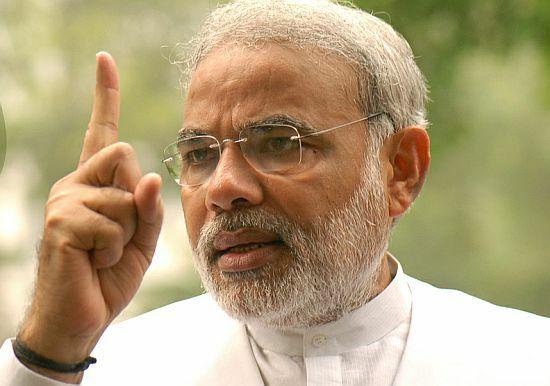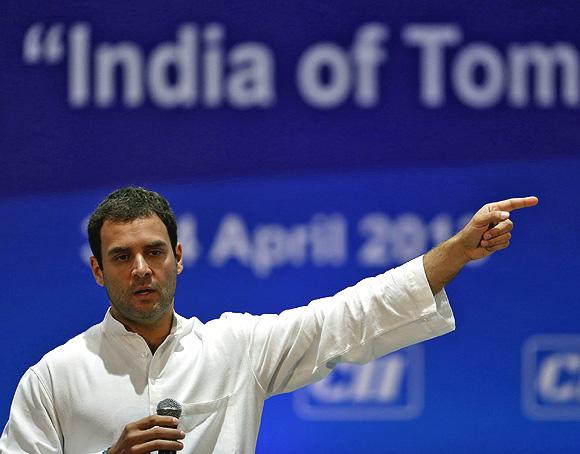
The comparison, cleverly engineered, appears to work for Modi each and every time as he is a better orator, better informed, a politician of the masses, and certainly not diffident or shy. One almost feels sorry for Rahul Gandhi pitted against a politician who has calibrated his rise so successfully, and is still working to ensure national and international acceptability, says Seema Mustafa
There is no comparison between Congress scion Rahul Gandhi and Gujarat Chief Minister Narendra Modi. Both are as different as chalk and cheese, and so it is strange that an obsessive media does not allow the one to speak without bringing in the other and insisting that guests on television chat shows make similar comparisons, that are odious and far off the mark to say the least.
The comparison we are told comes from the fact that both are their respective parties prime ministerial candidates, but this too is not strictly true as neither the Bharatiya Janata Party nor the Congress has formally endorsed Modi and Rahul respectively. Besides if rhetoric is to be believed Gandhi is not even a claimant for the post.
It is true, as journalists and Modi supporters keep repeating ad nauseum, that the Gujarat chief minister has risen in politics on his own steam and has not had support from a family as it were, while Rahul is in politics simply because of being the heir to the Nehru-Gandhi dynasty and it is a moot question whether he would have even ventured into the field had it not been for his DNA as he has himself referred to it.
...

To be fair to Rahul, he appears to be conscious of the platinum spoon in his mouth, and has often referred to it in his speeches and remarks to the media. However, the past notwithstanding both are now in politics and will lead their political parties into the polls.
Modi is brash, brazen, nasty and clever. Rahul is shy, diffident, childish and well meaning. Modi, as a student said on a television show with the insight of youth, is "authoritarian and he lets us know that he is a leader and he will take the decisions. Rahul, on the other hand, tells us to lead but we do not want to, we prefer a Modi who can resolve our problems than a Rahul who seems hesitant and confused."
The comparison, cleverly engineered, appears to work for Modi each and every time as he is a better orator, better informed, a politician of the masses, and certainly not diffident or shy. One almost feels sorry for Rahul pitted against a politician who has calibrated his rise so successfully, and is still working to ensure national and international acceptability.
The Congress seems to have realised this and its party managers are working to de-link the two by making it clear that the party is not in the game of comparisons, that Rahul is his own person, and has no interest in competing with Modi. The BJP on the other hand, misses no opportunity to deride the Congress prince, and turn the spotlights on their 'man' to highlight his maturity and supposed intelligence and good administration.
...

For instance, although Modi was not even in the vicinity of the CII meet that Rahul addressed, all television channels ensured that the latter lost the space to the former by insisting that the guests answer questions comparing the two leaders. Rahul Gandhi was effectively pushed into the back seat.
It is interesting how opinion makers join news anchors in highlighting Modi's so called achievements, his humour, his oratory skills, his supposedly excellent administration even as all keep completely silent about 2002 and the fact that nearly 800 Muslims were killed under his watch. It is amazing how this massacre is being projected now, by some of the journalists who reported the violence those days, as an 'aberration', a deed of the past best forgotten.
Anyone writing about it is pilloried, those still fighting for justice in the courts and facing discrimination on a daily basis are ignored, as India Inc lay out the red carpet for the Gujarat chief minister who seems to have washed away all the sins with the magic words of 'growth' and 'development'.
Modi cannot be compared to any existing politician as he is unique. Unlike the Congress perpetrators of the 1984 violence against the Sikhs in Delhi, where nearly 3000 were killed by rampaging mobs, Modi has subsequent to the violence won an election and established complete control over social and political Gujarat.
Dissidence against him has been vanquished and his supporters like Amit Shah re-instated with full honours in the BJP. By endorsing him, Indian industry and its supporters are endorsing the violence that he used to catapult himself into power (he was just a small factional politician before 2002) and giving a clean certificate to the polarisation that he has created to his advantage.
...

Instead of holding him accountable, Indian industry never the conscience keeper of society seems to have turned the violence into an asset for Modi, viewing him as a man of 'action' who carries an iron fist and is not averse to throwing a punch or two to put people (read minorities and dissenters) in their place when required.
The Modi versus Rahul pitch works to the advantage of the former. And by projecting both as the prime minister in a 'pick and choose' format, the naive are toppling over for Modi as the better choice. The facts demonstrate very clearly that Gujarat certainly does not lead the Indian states in development and growth; that Modi has blocked justice and the law whenever and wherever possib#8804 that he follows an exclusivist and not inclusive growth policy; that he rules through polarisation and marginalisation.
There is sufficient data and statistics to prove each of these points, and demonstrate that Modi's rule is fraught with injustice and discrimination. He is a consummate politician who has hired the best lobbyists and public relations firms for an image makeover, where every trick in the book has been used and statistics fudged for convenience as and where necessary.
Rahul, on the other hand is a politician with little depth or skills. He is juvenile in his thinking, immature in his responses, and clearly unable to address or handle the complexities of India. He does not inspire confidence, not even in the youth that like the rest of India recognise leaders when they see one. He is seen as 'nice', 'a good chap' but not as a leader who inspires confidence.
...

His CII performance for instance, earned him some applause for sincerity but not for his knowledge of issues concerning Indian economy, as he failed to impress and enthrall the hard-nosed business community. He has been speaking on generalities now for a long time leading to speculation that he is either not informed or just plain diffident of dealing with India's harsh and difficult specifics.
All in all not much of a choice for the Indian electorate. Of course, both sides are hoping that the threat of the other will bring in the votes. In that, Modi's supporters are stressing on the inadequacies of Rahul to garner the vote for a strong administration. And Rahul's supporters are looking for the vote that is fearful of Modi and wants to defeat him and the BJP at all costs.
But fortunately, the Indian electorate insists on marching to its own tune, and might spring its own surprises when the country finally goes to the polls.
...